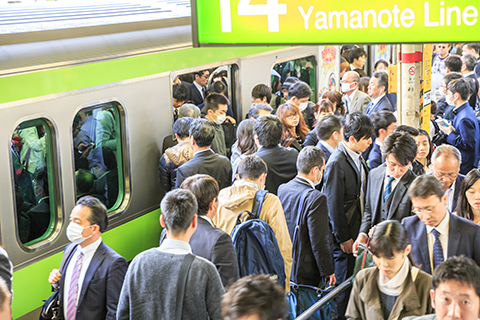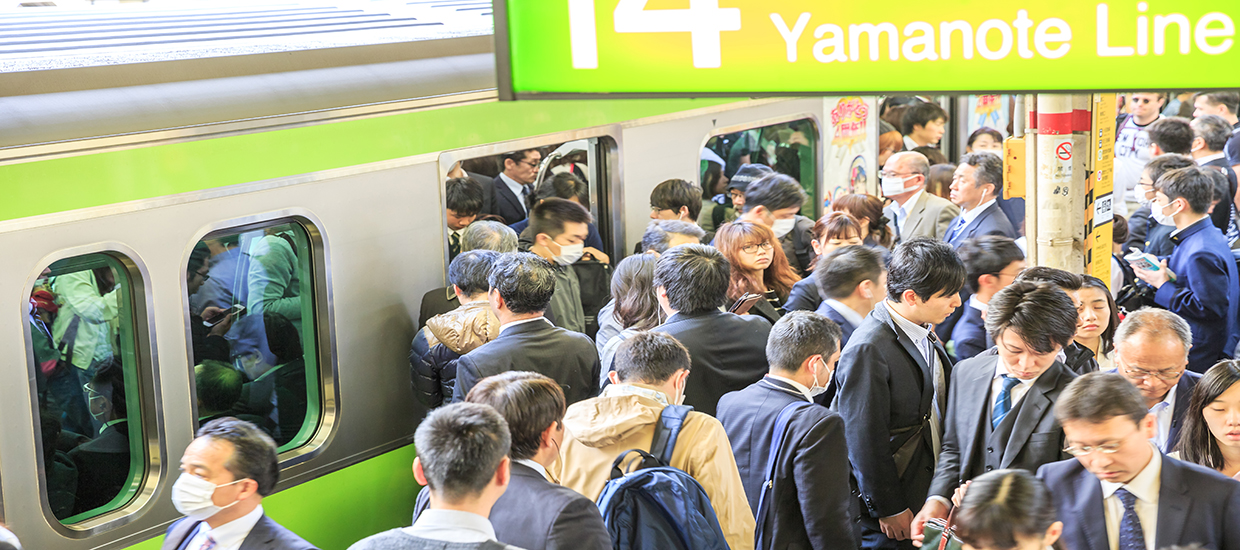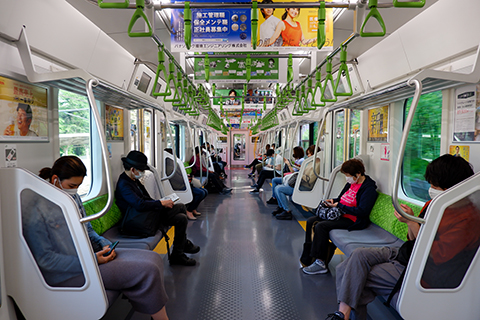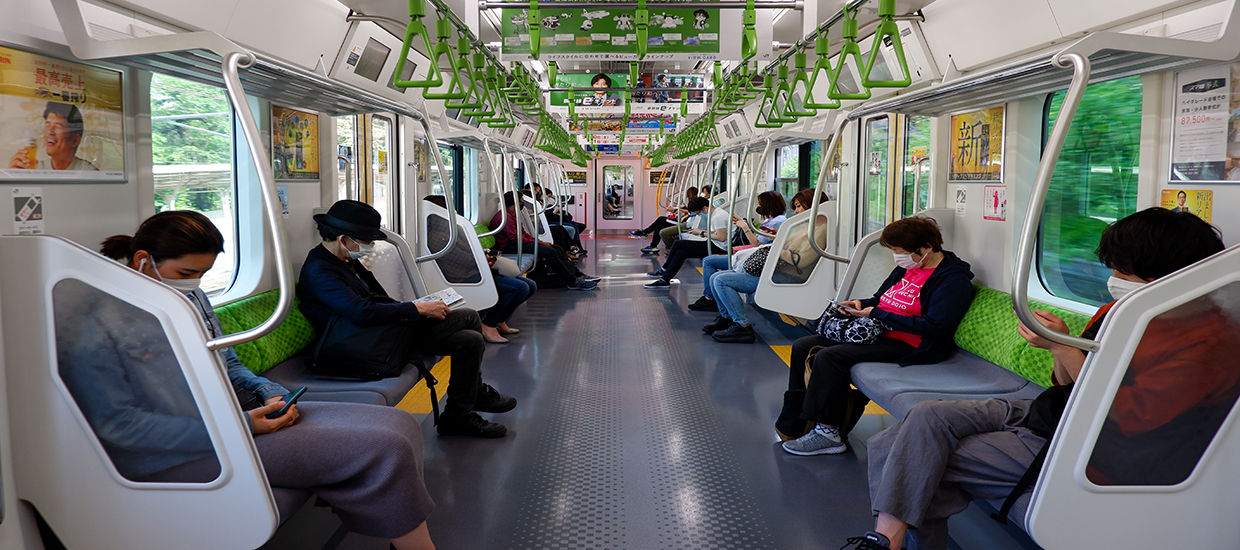By: Dr. Hiroshi Ito
Professor
Department of Economics
Nagoya University of Commerce and Business
Death by the Coronavirus versus Death by a Stagnant Economy
In March 2020, Japan’s local population was angry with its government. They felt that the measures adopted by the government to stop the spread of the novel coronavirus were not aggressive enough as compared with other countries. I, however, was angry with the Japanese government for a different reason: the government had suggested that they were preparing to declare a state of emergency. I thought to myself, "What will happen if the country declares a state of emergency now? Economic activities will be paralyzed, which will cause a rise in bankruptcies, unemployment, and suicides."
The official name of the novel coronavirus is SARS-CoV-2, and the disease it causes is called COVID-19. The official name of the disease was declared by the World Health Organization (WHO) after China reported its first case in December 2019 as an "unknown pneumonia." On January 16, 2020, the first case of COVID-19 infection was declared in Japan. The infected person was identified as a Chinese national. While watching the news on January 25th, the topic of COVID-19 was raised. Newscasters were talking about whether the Japanese government should send a repatriation flight to Wuhan, China, for Japanese citizens and quarantine them in separate facilities. When a commentator said, "I think it's better to close our national borders to prevent further infection from outside," one expert responded, "I think it's too late to do so. The virus is already pervasive." The other newscasters attacked the expert as if what he said was insane. I suspected that the expert’s comments might be true. Nonetheless, as of January 25th, 2020, it was widely believed that COVID-19 was like SARS, which remained contained in China and a few other Asian countries, with some exceptions, in 2003.
On January 30th, 2020, the WHO issued official notice of a public health emergency of international concern regarding the spread of COVID-19. Even then, international public opinion, in general, did not perceive COVID-19 as a serious threat. Initially, I did not take COVID-19 very seriously either. However, I had plans to travel to an academic conference in Singapore in early February, so I had to pay attention to current events. By February 6th, Singapore had 26 cases of COVID-19 infection, the second-highest in the world—yet there were still no travel restrictions. At the conference I attended, there were no participants from China and Singapore seemed to be functioning as usual.
By February 2020, despite the surge in the number of infected people in South Korea, international public opinion had not yet provoked any serious action. After returning to Japan from Singapore, I was already thinking about traveling to Europe in May 2020. However, at the end of February, a Swiss friend informed me that many people had tested positive for the coronavirus in the northern part of Italy. The infection immediately spread throughout the country The Italian government declared a lockdown that restricted the movement of people between the North and South, and a number of people tried to head south before the lockdown took effect. As a result, local railway stations and airports were flooded with people, presumably forming many new clusters of infection.
It was on March 12, 2020 that WHO declared COVID-19 a global pandemic. Eventually, COVID-19 spread to many countries, including Brazil, Iran, Spain, and the United States. At first, I was optimistic that the outbreak might be over by the end of April 2020 so that I could still travel to Europe, but when a friend from France sent me a video that recorded the lockdown there, I decided not to travel.
By the latter half of March 2020, there was growing and urgent public demand for the Japanese government to declare a state of emergency. Even the term "lockdown" was uttered by the Governor of Tokyo; although it appears impossible to enact under current Japanese law. I was disappointed that many people did not consider the socio-economic impacts of a lockdown or state of emergency. In the end, a state of emergency was declared on April 7th, 2020. Media and other critics claimed that the Japanese government was too slow to respond to the crisis, saying, "It's too late. There must have been an earlier time to declare it. Do politicians prioritize money over the lives of people who may die from the coronavirus?"
I was also dissatisfied with some of the Japanese government's approaches, such as Abenomasks- the initiative that distributed two cloth masks to everyone in Japan. Abenomasks were too costly for such limited impact. However, I thought that the timing of the state of emergency was ideal. If the state of emergency had been declared earlier, the Japanese economy would not have survived for long and the lockdown would have needed to be lifted at least halfway. In fact, even in the United States, which many said had locked down too late, some states were being “forced” to reopen the economy in early May. Many companies went bankrupt under the lockdown, and the number of unemployed people was approaching 20 million in the US. COVID-19-related suicides were being reported in Asia, Europe, and North America.
In Thailand, for example, an incident was reported in which a man and his daughter threw themselves into a river and died. The man lost his job during the lockdown and tried to commit suicide by jumping into the river, but his five-year-old daughter followed him, shouting, "Daddy, don't leave me alone," and both died. I thought, “In Japan too, unemployment and bankruptcy will soon become very serious issues due to the state of emergency and subsequent stagnant economy. If that happens, no one will ever remember that they said the state of emergency was declared too late. Instead, they will complain that they don’t have money due to the state of emergency.” In Japan, this will result in an increase in suicides.
I also differed in opinion from the general public regarding the Japanese government's financial support measures after declaring the state of emergency. The general public was against providing financial support and preferred temporarily eliminating the value-added consumption tax as everyone living in Japan would benefit from this. I, on the other hand, thought differently. As the coronavirus crisis is not a financial crisis like the Lehman shock and people do have money, instead of temporarily eliminating the value-added consumption tax, the government should inject money into small- and medium-sized enterprises (SMEs) that were financially strained and provide financial support for those who lost employment because this is necessary for the economy to survive. Besides, the value-added consumption tax would have to be reinstated someday to secure funding for social welfare and if eliminated, even temporarily, the economy would be negatively impacted when it is restored.
While vaccination and medicine are currently under development, we do not know if or when we, the majority of Japanese, will have access to them. Obviously, we will not be able to remain at home forever and will have to keep the economy going for our own survival. It is reported that as of August 17, 2020, 440 companies have filed for bankruptcy and more than 100,000 people are unemployed due to COVID-19. The Japanese are fragile when it comes economic impacts; according to the Police Department of Japan in 2019 more than 20,000 Japanese committed suicide, more than one-fourth of whom did so for economic-related reasons such as job loss. As of August 15, 2020, Japan has reported 1,080 COVID-19 related deaths. Therefore, I would argue that the national response to COVID-19 must take into consideration contextual factors that weigh a number of risks against the benefits. Of course, we have to prioritize minimizing risks by wearing masks and through social distancing but our response in Japan must factor in the real impacts of the disease on our nation. Each context is unique, as I have attempted to present here. The challenge before us in Japan is whether we prefer death by coronavirus or death by a stagnant economy.







